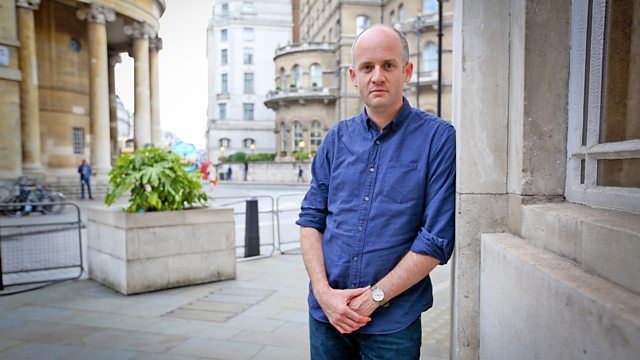Episode 1
To understand anger, we have to know what it is, and how it came to be. Oliver Burkeman discovers how our biological and social evolution made us so angry.
In the developed world we live in a blessed epoch where life has never been better. Infant mortality has been all but abolished, education is open to all, we have access to technology that would have been seen as the stuff of science fiction little more than a decade ago. We are safer and wealthier than at any time in human history. So why are we so damn angry about everything?
To understand anger we need to start with what it does to us physiologically, specifically how anger makes us act and think - or more accurately not think.
Oliver discovers why anger gave humans an evolutionary edge, developing beyond a basic animalist aggression to become what evolutionary psychologist Aaron Sell calls ‘a mind control device’ that gets us better treatment. He explores how nature, as well as the development of our cultural and philosophical attitudes of anger has lead us to the kind of anger we all feel today - and asks if we can take control of it?
Last on
![]()
From road rage to social media tirades, it often seems like we're in a state of fury.
Ryan Martin

He explains how anger, as it has evolved and developed within us, can be triggered more than ever in the modern world.
Aaron Sell

He explains why anger was an evolutionary winner, an adaptation designed by natural selection that functions to regulate conflicts of interest, insure good treatment from social partners and avoid outright violence as a first solution to conflict . Aaron calls this
Maya Tamir

is professor of psychology at the Hebrew University. Her research explores the instrumental functions of emotions and their role in emotion regulation. Specifically, she studies whether people know about the instrumental functions of emotions and whether they seek such functions when they regulate their emotions.
She explains that emotions are not simply the results of evolution, but influenced by our cultural beliefs, personal values, and even personal need.
Mark Vernon

a writer, commentator and psychotherapist, contributing to and presenting programmes on ����ý radio, writing for the UK national press, as well as online publications and podcasts. He works as a psychotherapist in private practice and has also worked at the Maudsley hospital in south London. His PhD is in ancient Greek philosophy, and other degrees in physics and theology. He used to be an Anglican priest
He tells us how philosophers and religion viewed and shaped anger as we know it.
Broadcasts
- Wed 17 Oct 2018 09:30����ý Radio 4
- Mon 18 Mar 2019 13:45����ý Radio 4


